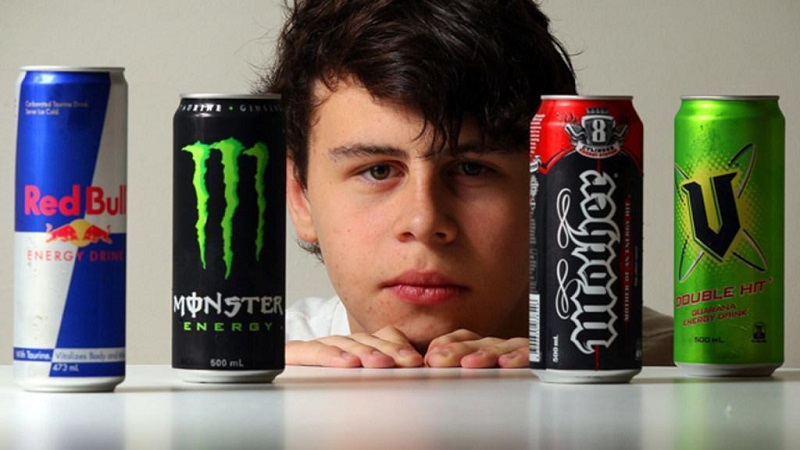Study Suggests Energy Drinks Can Lead To Cocaine Use

How safe are energy drinks for teens?
ADOLESCENTS and young adults who consume too many energy drinks are much more likely to use cocaine and amphetamines later in life.
A new study from the University of Maryland, published in the journal Drug and Alcohol Dependence, found that people who drank large volumes of the highly caffeinated beverages were also much more likely to develop alcoholism than their peers.
Just over half of the 1099 participants were deemed to be on a “persistent trajectory”, indicating they persistently used energy drinks over a four-year period. This significantly increased their risk of developing alcoholism by the age of 25.
Participants on the mid-to-high end of the spectrum studied had a significantly higher risk of moving on to drugs like cocaine and other stimulants.
“This study gives evidence of a specific contribution of energy drink consumption to later substance use,” said Professor Amelia Arria, an associate professor of behavioural and community health who was the lead author on the US-based study. “The results suggest that energy drink users might be at heightened risk for other substance use, particularly stimulants.”
Around three per cent of Australians regularly consume energy drinks such as Red Bull, Monster and Rockstar, which are particularly popular with people aged 14-30. The beverages don’t just provide a gateway to harder substances, as this study suggests, but a whole host of other medical conditions.
Earlier this year, Sydney’s Royal Prince Alfred Hospital released a study showing young people with no known history of heart disease could place themselves at risk of a fatal cardiac arrest after just one drink.
Energy drinks sold here are allowed to have up to 320 milligrams per litre of caffeine, which is equivalent to four cups of coffee.
“They’re not lolly water, they’re actually potentially stimulating drinks that can alter heart function and heart rhythm,” cardiologist Dr Chris Semsarian told the ABC in February, while calling for sale of the drinks to be more restricted.
Despite the risk, Australians consume more than 100 million litres of energy drinks each year — with young men in the highest risk category because they consume vastly more energy drinks than women of the same age.
High consumption of energy drinks has also been linked to health complaints such as headaches, stomach aches and sleeping problems.
Dr Semsarian’s calls echo those in a report from City University London’s Centre for Food Policy, which called for sale of energy drinks to be restricted to people over the age of 16, and for a ban on all marketing targeted at children.
Story Credit: http://www.news.com.au/lifestyle/health/health-problems/study-suggests-energy-drinks-can-lead-to-cocaine-use/news-story/ed0f104adf06bad77cc19a0269c635a4


